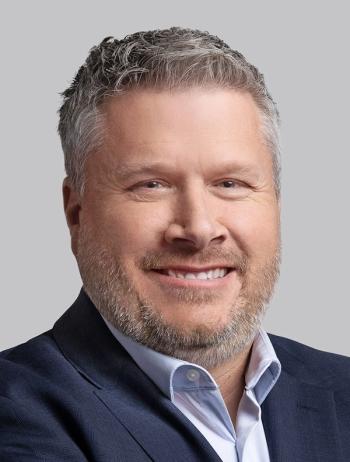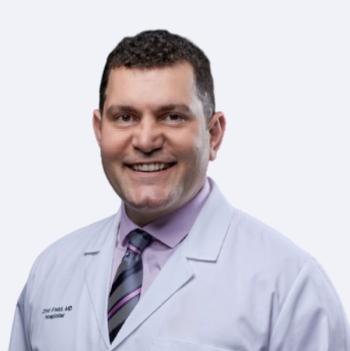
How doctors can find nonclinical jobs
According to recent surveys, doctors are branching out into non-traditional work more than ever before.
According to recent surveys, doctors are branching out into non-traditional work more than ever before.
RELATED READING:
Career change for physicians used to mean changing specialties1, whereas now, it means leaving medicine itself. A research study published in Mayo Clinic Proceedings reported that 9.7% of the 6,695 doctors surveyed between August 28, 2014 and October 6, 2014 planned to leave clinical work for an administrative position in healthcare, while 1.9% indicated that they planned to leave practice altogether to pursue a different career.2 For those who are searching for nonclinical jobs, it can be helpful to know where to find these jobs and how to get hired.
Nonclinical job trends
Most nonclinical jobs fall into a few industries that are ready-made for physicians, such as health insurance, pharmaceutical and regulatory agencies.
Heather Fork, MD, a professional career coach in Austin, Texas, explains that there is a fairly strong demand for doctors in areas such as health insurance, benefits management, worker’s compensation and disability, pharmaceuticals, informatics and physician adviser.
Fork has noticed that as certain aspects of the health care industry shift, new types of nonclinical jobs are seeing growth.
POPULAR ON OUR SITE:
“With all of the data that is being amassed with the EMR, there is a need for physicians in the area of data mining and analytics, in addition to those working with the clinical application of the EMR itself,” she says.
She also has observed that there are some differences in the job availability for primary care physicians and specialists.
“If we look at pharma, drug safety positions often advertise for primary care physicians, but for other areas such a medical monitoring or clinical trial development, they may want an oncologist, cardiologist or a neurologist,” Fork explains
Not all areas of nonclinical work offer vast numbers of job openings, however. Angela Dunn, MD, a primary care physician who now works as the deputy state epidemiologist for the Utah Department of Health, notes that it is challenging for MDs to find jobs in public health, for example.
“There are only a handful of positions for MDs due to funding,” Dunn says. “Doctors may need to be creative and show the value they can offer.”
How a Physician Can Land a Nonclinical Job
While there are nonclinical jobs out there, most physicians do not know where to find them.
IN CASE YOU MISSED IT:
Doctors need to put little, if any, effort into finding clinical jobs, typically receiving invitations for interviews with compensated travel and accommodations. But, as physicians who work outside of patient care acknowledge, this is not the case for nonclinical jobs.
Networking is an important aspect of searching for work outside of direct patient care. Terry Glauser, MD, a former emergency medicine physician who is now vice president of medical affairs of MCM Education, a medical education company, advises doctors to build contacts, which she says can help you get your foot in the door. She adds that when people who have worked with you know that you do a good job, they may reach out to you, even years later, with new opportunities.
Stephen Ruby, MD, a pathologist from Burr Ridge, Illinois, has nonclinical experience that includes working with startups. He has seen physicians make the wrong moves in terms of the nonclinical job search.
“Doctors rarely find opportunities talking to other physicians,” says Ruby “They need to talk to entrepreneurs and business people, not people who want to be entrepreneurs.”
Doing Your Homework
Physicians also need to understand the industry when applying for a job. When looking for a job in a nonclinical industry, it is important to put in more effort and to do more background research into the job duties than that which is normally expected when applying for traditional clinical jobs.
A recruiter, who requested anonymity , has fielded numerous applications from physicians for the pharmaceutical industry. She says that doctors believe that once faced with a new job, they will rise to the challenge regardless of the expectations.
“While that is probably an accurate expectation, those who are doing the hiring need some reason to believe that the candidate for the position has the ability to do the job well. That requires some evidence that the candidate has researched the details of the industry and the day-to-day realities of the work itself,” she says.
FURTHER READING:
Asking others who already work in your field of interest is a good start, as they can give you the honest and straightforward answer.
Michael LeWitt, MD, a preventative and occupational medicine physician who has had years of experience with medical legal work, says that medical legal work is well paid on an hourly basis, but the amount of work is not high enough to replace a full-time clinical salary.
LeWitt says he has reviewed medical malpractice cases from 1981 to 2014. “I ended up having a deposition or trial testimony in about 40 of the 1,000 cases I reviewed,” he says. “Over the years, I had earned about the equivalent of one year's salary, but never more than $10,000 per year.”
Vesper Ramos, MD, a neurologist and pharmaceutical director, acknowledges that finding a nonclinical job can be tough. “You have to knock on many doors,” she says. “No one is going to hold your hand through the process, but many people will be happy to help.”
1. https://www.ncbi.nlm.nih.gov/pubmed/7200739
Newsletter
Stay informed and empowered with Medical Economics enewsletter, delivering expert insights, financial strategies, practice management tips and technology trends — tailored for today’s physicians.






